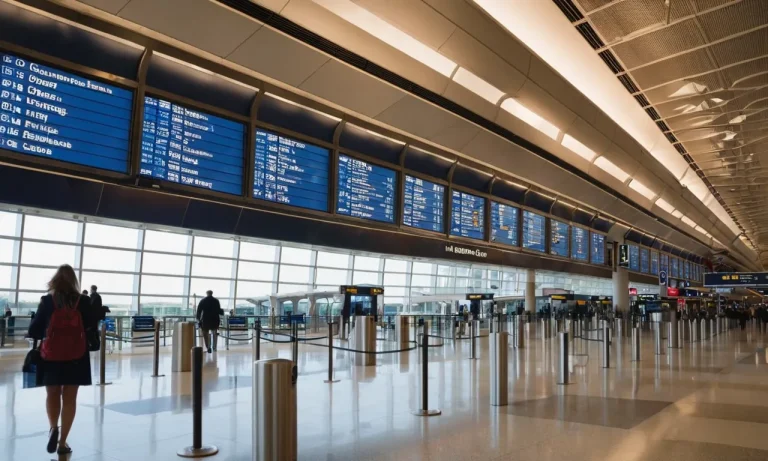Getting evicted can be stressful and costly. If you find yourself facing an eviction, you may be wondering who is responsible for legal fees – you or your landlord?
The short answer is in most cases, the tenant is responsible for paying all legal fees related to their eviction case.
However, the full answer is more nuanced.
The Eviction Process and Legal Fees
How Evictions Work
When it comes to evictions, understanding the process is crucial. Evictions occur when a landlord legally forces a tenant to leave the rental property.
This typically happens due to non-payment of rent, violation of lease terms, or illegal activities on the premises.
The eviction process involves several steps, including serving an eviction notice, filing a lawsuit, and attending a court hearing.
It is important to note that each state has its own set of laws and procedures regarding evictions, so it is essential to consult local regulations or seek legal advice.
Typical Legal Fees in an Eviction Case
Legal fees are an inevitable part of the eviction process, and they can vary depending on various factors. Generally, landlords are responsible for hiring an attorney to handle the eviction case.
The fees charged by attorneys may vary depending on their experience, location, and the complexity of the case.
However, some attorneys may charge a flat fee for handling an eviction case, which can range from $500 to $2,500.
It is important for landlords to discuss legal fees upfront with their attorney to avoid any surprises later on.
Other Court Costs and Fees
In addition to legal fees, there are other court costs and fees associated with the eviction process. These may include filing fees, service of process fees, and court appearance fees.
Filing fees typically range from $50 to $500, depending on the jurisdiction.
Service of process fees, which cover the cost of delivering legal documents to the tenant, can range from $50 to $100. Court appearance fees, if applicable, can vary depending on the court’s policies.
It is advisable for landlords to budget for these additional costs and factor them into their overall expenses when pursuing an eviction case.
In some cases, landlords may be able to recover these legal fees and court costs from the tenant if they prevail in the eviction case. However, this will depend on the specific laws of the jurisdiction and the terms of the lease agreement.
It is important for landlords to consult with their attorney to understand their rights and options regarding the recovery of legal fees.
Additionally, some states may have specific statutes that allow tenants to recover their legal fees if they successfully defend against an eviction.
Therefore, it is crucial for both landlords and tenants to be aware of their legal rights and obligations throughout the eviction process.
Can Landlords Charge Tenants for Legal Fees?
When it comes to legal matters, it is common for landlords to wonder if they can pass on the costs of legal fees to their tenants.
However, the answer to this question varies depending on a few factors, including landlord responsibilities, the terms outlined in the lease agreement, and the specific laws in each state.
Landlord Responsibilities
In general, landlords have a responsibility to maintain the habitability of the rental property and to resolve any issues that may arise. This includes handling evictions in accordance with the law.
While legal fees are often an expense that landlords incur during eviction proceedings, it is not always possible to pass these costs onto the tenant.
Landlords should check their local laws and consult with legal professionals to understand their specific responsibilities and limitations when it comes to charging tenants for legal fees.
What Lease Agreements Say
The terms outlined in the lease agreement play a crucial role in determining whether landlords can charge tenants for legal fees.
Some lease agreements may include a clause stating that the tenant is responsible for legal fees in the event of eviction.
In such cases, landlords may have the right to seek reimbursement from the tenant.
However, it is important to note that lease agreements cannot override state laws. If state laws prohibit landlords from charging tenants for legal fees, the lease agreement clause would not be enforceable.
State Laws on Legal Fees
State laws regarding the ability of landlords to charge tenants for legal fees can vary significantly. Some states allow landlords to include a provision in the lease agreement that holds tenants responsible for legal fees in eviction cases.
Other states have specific laws that prohibit landlords from passing on these costs to tenants.

Strategies to Avoid and Reduce Legal Fees
Communicate with Your Landlord
One of the first strategies to avoid and reduce legal fees when facing eviction is to maintain open and honest communication with your landlord.
By discussing your financial difficulties or other challenges that may be causing the eviction, you may be able to reach a resolution without having to resort to legal proceedings.
It is important to clearly communicate your situation and explore potential solutions, such as a temporary rent reduction or a payment plan.
Remember, your landlord may be willing to work with you if you approach the situation respectfully and honestly.
Seek Rental Assistance Funds
If you are facing financial hardship and are unable to pay your rent, consider seeking rental assistance funds. Many local and national organizations offer financial aid programs to help individuals and families in need.
These programs can provide temporary relief and help you catch up on rent payments, reducing the likelihood of eviction and the associated legal fees.
Negotiate a Payment Plan
Another strategy to avoid or reduce legal fees is to negotiate a payment plan with your landlord. If you are unable to pay the full amount of rent owed, propose a realistic payment schedule that allows you to gradually catch up on the arrears.
By demonstrating your commitment to fulfilling your financial obligations, you may be able to avoid eviction and the need for legal intervention.
Keep in mind that it is essential to get any payment plan agreement in writing to ensure both parties are clear on the terms and conditions.
Request Fee Waivers From the Court
In some cases, you may be able to request fee waivers from the court to reduce the financial burden associated with legal fees. Fee waivers are available to individuals who meet specific income eligibility criteria and can provide evidence of financial hardship.
These waivers can significantly reduce or eliminate the costs associated with legal representation and court fees.
To explore this option, consult the court’s website or contact the court clerk’s office to obtain the necessary forms and guidelines for requesting a fee waiver.
Remember, it is always advisable to seek legal advice from a qualified attorney if you are facing eviction or have concerns about legal fees.
They can guide you through the process, provide valuable insights, and help you navigate the complexities of eviction proceedings.
Additionally, familiarize yourself with local laws and regulations regarding evictions to ensure you understand your rights and responsibilities as a tenant.
What to Do If You Can’t Afford Legal Fees
Legal fees can be a major concern for individuals facing eviction. If you find yourself in a situation where you cannot afford legal representation, there are several options available to you.
By exploring these alternatives, you can still access the legal assistance you need without breaking the bank.
Apply for Legal Aid
One option for individuals who cannot afford legal fees is to apply for legal aid. Legal aid programs are designed to provide free or low-cost legal services to those who meet certain income requirements.
These programs are often available through local or state governments, as well as nonprofit organizations.
Keep in mind that legal aid resources may be limited, so it is important to apply as early as possible to secure representation.
Look for Pro Bono Lawyers
Another option is to seek out pro bono lawyers who are willing to take on your eviction case for free. Pro bono lawyers are legal professionals who volunteer their time and services to individuals in need.
They may work independently or be associated with legal clinics, bar associations, or other organizations.
To find pro bono lawyers in your area, you can contact your local bar association or legal aid organization. They can provide you with a list of attorneys who offer pro bono services.
Keep in mind that pro bono lawyers may have limited availability, so it is important to reach out to them as soon as possible to discuss your situation.
Represent Yourself
If you are unable to secure legal representation, you may need to consider representing yourself in your eviction case.
While self-representation can be challenging, it is not impossible. Many courts offer resources and assistance for individuals who choose to represent themselves, such as self-help centers and online guides.
Before deciding to represent yourself, it is important to thoroughly research the eviction laws and procedures in your jurisdiction.
Familiarize yourself with the necessary paperwork and deadlines, and consider seeking guidance from legal aid organizations or pro bono lawyers for advice.
Remember, representing yourself may require more time and effort on your part, but it is still possible to navigate the eviction process successfully.
By educating yourself and seeking assistance when needed, you can effectively present your case and protect your rights.
Conclusion
Facing eviction can be overwhelming, but understanding the process and your options for legal fees and representation is the first step.
While tenants are responsible for legal fees in most cases, you may be able to get legal aid, find a pro bono lawyer, negotiate with your landlord, or request fee waivers from the court.
Don’t be afraid to ask questions, explore your options, and negotiate when possible. With the right information and resources, you can handle legal fees and make the best of a difficult situation.






